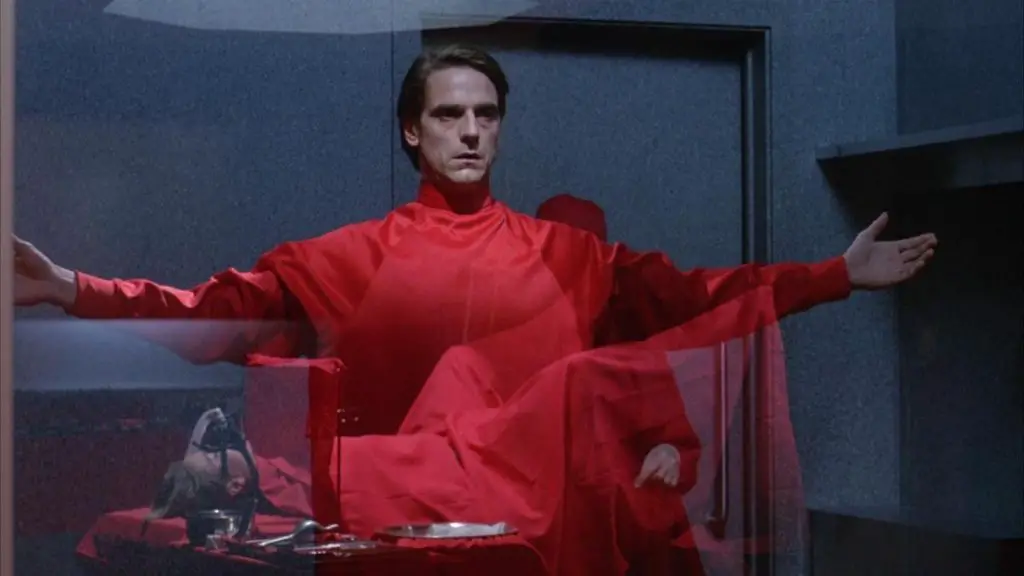
The title of Carl Ulrich’s first feature makes reference to women named Stephanie, Nathalie, and Caroline and rather disingenuously throws off “and Vincent” as if he’s an afterthought. But since “Stephanie, Nathalie, Caroline and Vincent” was written by Simon Boisvert, who plays “and Vincent” you can bet that the male part of this menage a quatre isn’t going to be forgotten. In fact, this is really Vincent’s story and all those women and supporting characters are just catalysts for Vincent’s transformation.
Vincent (Boisvert) is a defiantly anti-intellectual air-traffic controller living in Montreal (the movie’s in French with English subtitles). Even without a college degree he has a high paying, high pressure job that has left him high strung and quick to insult his long-suffering girlfriend Stephanie (Diana Lewis). He mocks her looks, her eagerness to get a Master’s Degree, and her increasingly clingy-ness. He’s also been cheating on Stephanie with Nathalie (Melanie Elliott), a sexy, slightly-disturbed young thing who also happens to be Vincent’s adopted sister. So Vincent has his women, his job, and his way of living, but everything is thrown for a loop when he meets Caroline (Natasha M. Leroux). Caroline makes Vincent feel like a whole new man and he dumps his other girlfriends and starts spending money with reckless abandon. But is Caroline using Vincent? Is she just a distaff version of the great womanizer? And will Caroline lead Vincent to a change he’ll regret? What happens to an egomaniac when he suddenly begins to think of someone else first? And what if he chooses to dedicate himself to the wrong person?
It’s impossible to know why “Stephanie, Nathalie, Caroline and Vincent” came in at 75 minutes. Was it budget constraints? Clearly this movie was made on the cheap, using mostly drab interiors and daytime shots. Or was it absence of ideas to expand these characters to the 90 minute mark? None of the characters feel fully developed and a little extra time with each of them could only have helped. Nathalie, for example, has only three scenes. And Stephanie vanishes for the middle third of the movie. And Caroline has no discernable character arc, going from ideal to bitchy in the blink of the eye. And even Vincent, although he’s in every scene, makes abrupt character shifts that don’t make any sense organic to the story. There are whole subplots involving Vincent’s friends that never evolve and which, if they didn’t relate to Vincent’s comeuppance, probably would have been axed entirely.
What remains is a quartet of great performances slightly stranded by the film’s absence of visual style and its choppy narrative. Diana Lewis is a strong actress, but her Stephanie is a one-dimensional saint and sufferer. Other characters keep talking about how great she is, but we have to take it on faith. We pity her because Vincent mistreats her, but we don’t actually like her because she displays neither backbone nor intelligence. Melanie Elliott gives the film an erotic charge whenever she appears, but Nathalie isn’t around nearly enough, especially when you consider how spectacularly messed up her relationship with Vincent is. Elliott also gets stuck expressing the movie’s theme in her third appearance, an awkwardly expositional rant. And Natasha M. Leroux is convincing as both parts of Caroline’s personality, but those parts never have the chance to add up to a whole character. The same is true of Boisvert, who wrote himself a true bastard of a character and then gave the character a transition that doesn’t work. Vincent is hateful in his initial incarnation and pitiable in the end, but there’s no sense of ebb and flow.
“Stephanie, Nathalie, Caroline and Vincent” also has an unexplained reliance on Nirvana (the dearly departed Seattle group, rather than the spiritual ideal). The instrumental music is grunge-lite and the film later makes references to new albums by Metallica and Bon Jovi. And yet there’s no evidence that it’s supposed to be an early 1990s period piece. Was Boisvert’s script really old and nobody bothered to update it or are the French-Canadians really behind in popular culture? Just curious…
Not enough movies make you want to spend more time with their characters, but it might have been nice to get, say, 20 minutes more with Stephanie, Nathalie, Caroline, and Vince.

